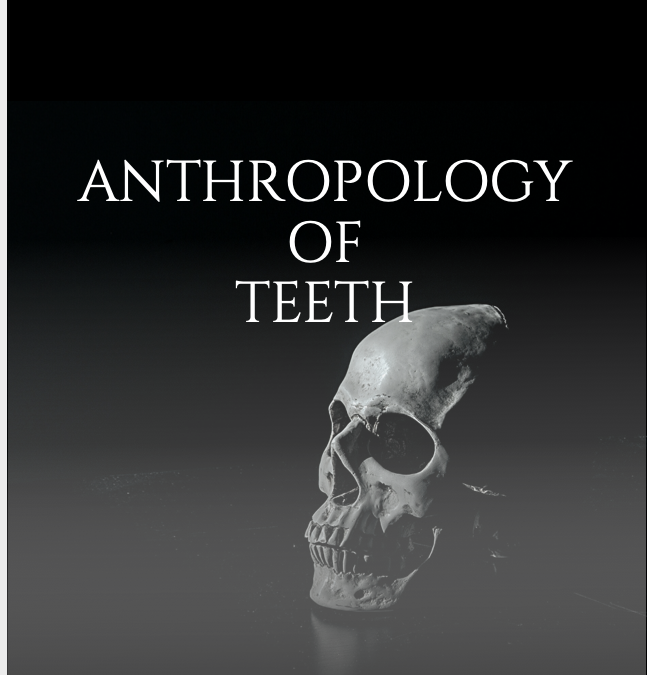
Dec 14, 2021
Congratulations, you’ve found out that you’re expecting! Caring for your teeth and gums is an essential part of your prenatal care plan. Our compassionate team of dental professionals is here to support you and your oral health throughout your pregnancy. We want to make sure that your prenatal dental care is easy and safe. Rest assured that our office stays up-to-date on all COVID-19 precautions recommended by the American Dental Association (ADA), the U.S. Centers for Disease Control and Prevention (CDC), and the Occupational Safety and Health Administration (OSHA). Along with choosing Falmouth Dental Arts as your partner in oral health, here are 5 tips for maintaining healthy teeth and gums during pregnancy:
1) Share Information
If you have a hygiene or other dental care appointment coming up, please let us know that you are expecting beforehand, as we may need to adjust your treatment plan. Bring a list of all of the medications and vitamins you are taking throughout your pregnancy. Also make sure to tell your obstetrician or midwife about any dental appointments scheduled during your pregnancy so that they can make additional recommendations.
2) Follow Your Regular Routine
Due to an increase in hormones, pregnancy can lead to changes in oral health. These hormonal changes can lead to an increase in plaque build-up that is sometimes referred to as “pregnancy gingivitis.” For this reason, it is important to keep to your regular dental routine. This includes flossing at least once a day and brushing at least twice a day with an ADA-approved toothpaste. If you have any concerns about the best toothbrush or toothpaste to use while pregnant, we are happy to help.
3) Combat the Queasy
If you feel queasy when you brush your teeth, try switching to a new brand of toothpaste or one with a milder flavor. If you are experiencing morning sickness (which can strike any time of day), rinse with mouthwash or a teaspoon of baking soda mixed with water to keep stomach acid from affecting your teeth.
4) Maintain Healthy Eating Habits
Did you know that what you eat during pregnancy can set your little one up for good oral health after they are born? Your baby’s teeth actually start to develop between the third and sixth month of pregnancy. We understand how hard it can be to eat a balanced diet when you are feeling nauseous and that food cravings can also dictate what (and when) you eat. Whenever possible, try to eat a balanced diet with vitamin and calcium-rich foods and limit sugary snacks.
5) Keep Your Appointments
It is important to keep any hygiene appointments during pregnancy to maintain your oral health and check for any changes. Again, it is always a good idea to let your obstetric provider know about any upcoming dental appointments. If you have any questions about your dental care plan during your pregnancy, please give us a call – Dr. Brunacini and Dr. Karagiorgos are happy to talk through all your treatment options. Give us a call at 207.781.5900 to schedule your next appointment.

Dec 13, 2021
It’s the most wonderful time of the year, which likely means that we will soon be treating ourselves to some festive food and drinks! That’s why the holiday season is a great time for us to take extra good care of our teeth. To keep your mouth merry and bright this holiday season (and every season), we’ve come up with the 12 Days of Dental Health!
Choose Tooth-Friendly Stocking Stuffers
Instead of stuffing the kiddos’ stockings with sugary treats, consider filling them with a colorful new toothbrush, flavored flossers, sugar-free gum, and fun mouthwashes. Let your little ones in on a little secret – Santa is all about healthy dental habits!
Drink Lots of Water
Adults and children alike should be sure to drink lots of water around the holiday (and every day!). Drinking water helps to rinse away bacteria and food particles and can even reduce plaque build-up. This is especially important when sweets are on the menu.
Brush Your Teeth with Your Favorite Holiday Tunes
Get into the spirit of the season and ensure that you (and your little ones) are brushing for two minutes or more by humming your favorite holiday song. Most classic carols are at least two minutes long, making this a perfect way to add some fun to your dental routine. Although twice a day is great, you may want to add in an extra brushing after eating foods heavy in carbs or sugar.
Add a Rinse to Your Routine
In addition to daily brushing and flossing, give yourself the gift of a healthy mouth by adding a fluoride mouthwash to your routine. Rinsing with mouthwash after eating sweet and sticky treats can help to remove any residue leftover on your teeth and reduce the risk of tooth decay. Here at FDA, we recommend Oxyfresh mouthwashes, a powerful yet gentle mouth rinse designed to help keep your smile healthy and breath fresh.
Be Prepared with Travel-Sized Dental Care Products
If you plan to travel over the holidays, don’t forget to pack your toothbrushes, toothpaste, floss, and mouthwash. To save space in your luggage, shop ahead of time for travel-sized versions of all of your favorite products. Kids love miniature versions of things, so this creates an added incentive for them to take care of their teeth while they are away from home.
Treat Yourself (and Your Loved Ones) to a Water Flosser
Waterpiks and other water flossers make it easier to remove plaque from between your teeth and under the gum line, reducing the risk of gingivitis. This is a nice alternative to flossing for those who find flossing difficult or painful. It is also a great option if you’re concerned about all those little plastic floss containers ending up in the landfill.
Gobble Up the Turkey – It’s Good for Your Teeth
Turkey is high in nutrients such as protein, calcium, and Vitamin D, and low in sugar, making this a good choice for your teeth and bones (although you may need a nap after eating it, due to its tryptophan content – a natural sleep aid).
Reach for Calcium-Rich Appetizers
Grab finger foods that are rich in calcium, like cheese, and vegetables such as broccoli and snow peas, along with dips made with cream cheese and Greek yogurt. Your teeth and bones will thank you!
Watch Out for Sugary Drinks
In addition to sugary, non-alcoholic drink choices, such as soda, eggnog, and hot chocolate, many alcoholic beverages are also surprisingly high in sugar. No need to skip the festive beverages altogether – just drink them in moderation, followed by a glass of water or a rinse with mouthwash.
Beware of the Crunch!
Common causes of broken fillings and teeth are ice, hard candies, and popcorn, so proceed with caution! Accidents do happen, so if you do have a dental emergency, rest assured that our team of compassionate dental professionals will get you in as soon as possible to make any necessary repairs.
Get Smile-Ready with Teeth Whitening
If you want to make sure your smile is in tip-top shape for photos, consider scheduling an appointment with either Dr. Brunacini or Dr. Karagiorgos to go over your teeth whitening options. Here at FDA, we offer both in-office whitening and at-home options.
Get Your Hygiene Appointment on the Books
After all the festivities, make sure that you have scheduled your regular hygiene appointment with us. To check on an existing appointment, or to make a new one, feel free to give us a call at 207.781.5900. We are your partners in oral health and are here to help!

Nov 22, 2021
It is hard to believe it’s already November, yet we still have so much to look forward to! Thanksgiving is a time for family, food, and gratitude. We at Falmouth Dental Arts have so many reasons to be thankful this year and we wanted to share some of them with you…
Our Family of Patients
First and foremost, we are thankful for YOU! We wouldn’t be here today if it wasn’t for our wonderful patients. Thank you for trusting us with your oral health care; we are truly honored to help you achieve your best smile and oral health! We have been so grateful for your patience and cooperation as we have navigated new safety protocols. It’s times like these when community is so important and we couldn’t ask for a better community of patients. Thank you, FDA patients!
The FDA Team
We have an amazing group of compassionate and knowledgeable dental professionals at FDA. Our fantastic hygienists, amazing assistants, and stellar office team are the heart of our practice, and alongside Dr. Brunacini and Dr. Karagiorgos, help us provide the best oral care possible. FDA is truly a team effort and we are incredibly grateful to have individuals who are so dedicated to our patients and practice. Thank you, FDA team!
Tools for Healthy Mouths
FDA is committed to being on the cutting edge of dentistry and we are blessed to have access to some of the most modern dental tools and technology available today. From Invisalign, to digital x-rays, to restorative dentistry, to our VELscope oral cancer screening tool, we have many state-of-the-art tools and techniques at our fingertips that protect our patients’ health and smiles! Thank you, dental care tools and tech!
Our Health
Lastly, we at Falmouth Dental Arts are thankful for our health and the health of our families. Regular dental care is such an important component of our overall health and wellness, so remember to schedule your routine hygiene appointments, make healthy meal and snack choices, and take care of your teeth in between visits. For scheduling or to ask about any of our services, feel free to give us a call at 207.781.5900.
We wish our patients and staff a wonderful holiday filled with relaxation, good food, and pie for dessert (and don’t forget to brush your teeth!).
Happy Thanksgiving from our family to yours,
Dr. Brunacini & Dr. Karagiorgos & the FDA Team

Nov 19, 2021
Need a fun conversation topic for your Thanksgiving gathering? How about teeth? Our teeth are fascinating! More than mere pearly chompers that chew your food and give you a beautiful smile, they can also convey a lot of information about us. Just ask Dr. Brunacini, your dentist and favorite amateur dental anthropologist! This month we close our interview series with Dr. Brunacini on Dental Anthropology. Join us for Part 3: If These Teeth Could Talk.
Why are teeth such a useful tool in studying our past?
Dr. Brunacini: Teeth can give us a snapshot in time about someone’s life, such as their age as well as their diet. They are exposed to our diet in ways that other body parts are not, so they often can convey useful information about a person and their environment. Also, teeth are unique in that they are slow to decompose. Your tooth enamel is the hardest substance in your body, stronger than your bones!
What can an anthropologist learn from our teeth?
Dr. Brunacini: Anthropologists can learn a lot from our teeth. Teeth can help determine how old a person was at death, what kind of health they were in, and what kind of diet they had. Teeth can even provide information about the human’s cultural rituals, such as cultures where dental modifications played an important role.
What is something fascinating you’ve learned from the study of teeth?
Dr. Brunacini: For me, the most interesting thing is how our jaws have become smaller over time, possibly due to diet changes, which has contributed to some common chronic diseases. Of course, with smaller jaws there is less room in our mouth for our teeth, which has made wisdom tooth extractions commonplace. Also, sleep apnea and acid reflux are very common diagnoses now that have some connection to jaw development from a young age.
As a dentist, is there an example of information that a patient’s teeth tells you that perhaps they themselves do not?
Dr. Brunacini: In modern days, the teeth we examine and evaluate daily gives us insight into a patient’s overall health. We commonly discuss issues such as bruxism (tooth grinding) with our patients, but we can also see signs of acid reflux and even sleep apnea that can affect the entire body. A patient may not be aware that their teeth can provide us with this sort of information about their health, or that as their dentist we can help them. Our goal is to be a partner for our patients in their oral care, which includes their overall health, and we are always happy to discuss treatment options that can help improve the health of their teeth and their body!
Thank you, Dr. Brunacini!
If you have questions about your teeth or need to schedule your next appointment, please give us a call at 207.781.5900.

Oct 19, 2021
Are you excited for Halloween? We are, too! From the amazing costumes to the spooky decorations – it’s one seriously fun holiday! In the spirit of the season, we thought we’d share some silly Halloween jokes with you this year…because we love to see you smile!
What kind of toothpaste do vampires buy?
Ultra-Bite
What did the ghost say when he found out he had cavities?
Boo Hoo!
Why did the vampire need mouthwash?
Because he had bat breath
What do you call a bear without teeth?
A gummy bear
What does a vampire fear most?
Tooth decay
We hope these jokes gave you a good MWAA-HAA-HA! Please feel free to share some of your favorite Halloween jokes with us on Facebook! All jokes aside, Halloween can be a scary time for your teeth…all those sticky, sugary treats can really wreak havoc on your chompers. Be sure to keep up with your oral health care routine – brushing twice a day and flossing once a day – especially after you eat your trick-or-treating candy! If you’re due for a check up appointment with Dr. Brunacini or Dr. Karagiorgos, or if you have questions about how to maintain a healthy and beautiful smile this holiday season, please call our office today at 207.781.5900. Our team of dental professionals is happy to help you achieve your oral health care goals!





